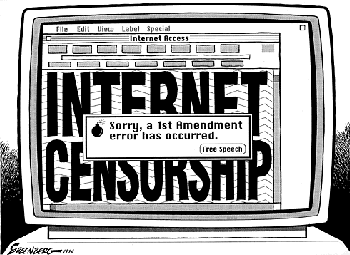The following first appeared on September 30, 2015 in response to “On Banned Books Week.”
Censorship has always fascinated me–who gets to decide what someone else can read? Why? By what authority can one person tell another what they are “permitted” to know? I reject the legitimacy of censorship out of hand. No one has such authority, and history proves those who wish to control what others consume are, without exception, eventually exposed as the bad guys.
Growing up in South Africa, many things–music, literature, art–were outright banned and censored, from ANC symbols, to most international music, to the movie “Black Beauty” solely because of its title, to certain words in newspapers, yes, literally blacked out on the page like you see in dystopian movies (and, say, in the 9-11 Commission Report), words like “Casspir” (the South African equivalent of “BEARCAT,” the armored trucks now being seeded by the Federales into peaceful communities across America, including more than 20 in New Hampshire) because if you banned the mentioning of the vehicles being used to fight illegal border wars, well then, reporting becomes problematic and difficult to do, and therefore, perhaps, journalists will stop writing about such pesky things, neh?
Under apartheid, South Africa had the “Jacobsen’s Index of Objectionable Literature” which contained a “Complete List of All Publications in Alphabetical Order, Together with Authors, Prohibited from Importation Into the Republic of South Africa, and All Other Banned Literature.” The list is long, and difficult to find online. I have ordered a hard copy of “A Culture of Censorship: Secrecy and Intellectual Repression in South Africa,” secondhand for $0.02 plus shipping from Amazon, which reminds me of two things:
1. How soon we forget our histories; and
2. Thank god for the free market. If only said book could be delivered by an aerobot drone to my door, but alas, the FAA has been spending its time on such important issues as licensing paper airplanes for flight.
South African author Nadine Gordimer wrote in 1968, republished in The New York Times Books section in 1998:
All the work, past, present and future, of an individual writer can be erased by a ban on his spoken and written word. The ban not only restricts his political activity, which is its avowed intention, but negates his creativity–he becomes a non-person, since his form of communion and communication with the society in which he lives is cut…. And so long as our society remains compartmentalized, our literature will be stretched on the rack between propaganda, on the one side, and, on the other, art as an embellishment of leisure.
Some people wonder why I take issue with so many things I see happening in my adopted country, and, frankly, why I refuse to shut up about it, to give up, to cave in, to just say, Nah, this crap is too hard to change, the difference we can make too infinitesimal, so why try?
It’s because I have lived through a police state before, and America is lock-step marching there. This is not hyperbole. I will grant you: America is doing its police state right, “better,” more subtle, more comfortable, of course, it’s what America does, after all. This police state is hidden behind both the “propaganda” arm, and mostly, the “embellishment of leisure”: The sports, the reality TV, the Christmas carol commercials to consumers in September, the debates, the joke of it all.
The bread and circuses, the tinny music piping from the organ grinder while the monkeys dance, while MILLIONS of peaceful people rot in prisons for voluntarily inhaling a plant, while MILLIONS of peaceful people in far away lands are being murdered under the cloak of the Stars and Stripes, while MILLIONS of people are being displaced by state-funded terror raining down from the skies.
Why does Banned Books Week matter? It matters because it creates an opportunity to talk about the bad guys. And, I am afraid to inform you, the US government is a bad, bad guy, he’s the boyfriend who beats you then tells you he can’t live without you–or you can’t live without him?–and you go back. Me? I decided a decade ago that I wasn’t taking the Fed Gov back, that I would take my chances with a smaller wife beater (the state of New Hampshire), and see what kind of difference I can make on a local level.
Given what happened a few weeks ago at the Kilton Library in West Lebanon, NH (in 2015), where America’s first Tor relay node was made operational again after the community decided to disregard the DHS’s scare tactics, I know I made the right decision to make New Hampshire my home.
Will you join me, and fight the good fight with thousands of other freedom fighters in New Hampshire? Join the Free State Project today.
